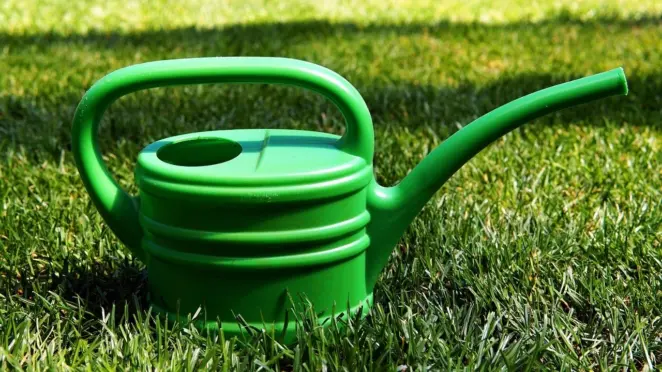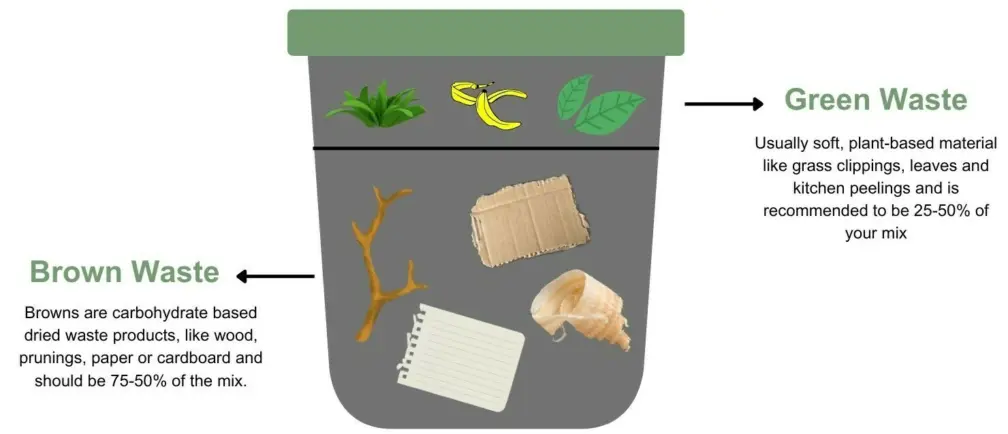Eco-Friendly Top Turfing Tips
With eco-friendly trends like No Mow May and Prairie Planting on the rise, it’s clear that sustainability is becoming more of a priority for both professional and novice gardeners.
If you want a beautiful and environmentally friendly green space, follow Online Turf’s tips for a lawn that’s lush, green and thriving at no extra cost to the environment.
Watering
Conservation of water is key in maintaining an eco-friendly lawn. No matter the season, there’s ways to ensure your turf is getting just the right amount of water- not a drop more or a drop less than it needs.
By regularly monitoring your moisture levels, both in the soil and from the appearance of the turf, you can tailor your watering to your plant’s needs. To prevent evaporation and ensure thorough absorption, we recommend watering in the morning and at night when the sun is not directly overhead.
Rather than using tap water, utilising natural resources like rainwater to irrigate your turf can be an easy eco-friendly alternative. Investing in a Water Butt means that rainwater can be collected over time and reduces overall water waste. Rainwater can also greatly benefit the health of your plants as it does not contain the same amount of minerals, salts and chemicals as tap water.

Pests
Natural pest control methods are a great alternative to chemical-based, synthetic pesticides which can potentially harm surrounding areas of vegetation and natural garden wildlife like butterflies and bees.
Instead, opt for an eco-friendly alternative by using predator insects (ladybugs, lacewings) for maintenance free, natural pest control. They feed on small scale insects like aphids and mealybugs, preventing plant damage and enhancing the biodiversity of your garden.
You can naturally attract these to your garden by planting insect-friendly plants like nettles, buckwheat or any of the below:

To tackle current pest infestations, you can use a biological control agent like nematodes to attack soil-borne insects (grubs, gnats, maggots etc) with no residual harmful effects on the surrounding environment.
To prevent further pest invasions, you can use organic deterrents like garlic spray, citronella/neem oil and insecticidal soap to pre-emptively put off any pests from entering your garden.
Repurposing
If you’ve got any old or spare turf you haven’t used, composting is a great eco-friendly way to dispose of garden waste.
You can stack all of your unused turf into a corner of the garden and, with time, it will eventually compost down into a mulch pile. You can also add a mixture of kitchen scraps, leaves and plant trimmings to the pile to help make a nutrient-rich compost that will enhance soil fertility, moisture and strength.
Investing in a Compost Bin means that you can store the waste neatly and encourages you to maintain a constant supply of natural compost.

To get a high-quality compost, it’s important to include the correct mix of ‘Green’ and ‘Brown’ waste, so that the microorganisms that break down the mix have the right conditions needed to work optimally.
This compost is then perfect for growing flowers, vegetables or spreading across your lawn to aid new growth.
Longevity
Choosing a hard-wearing, durable turf is key in cultivating a sustainable garden. Resilient grass types are more likely to withstand heavy foot traffic and pet activity without being damaged, reducing the need for replanting & ensuring you’re getting the most out of your lawn.

Our ‘Rye Gold’ Turf is our most durable and hard-wearing turf and is the one we recommend for areas with heavy foot traffic or pet use.
The more adaptable the turf, the less maintenance it requires.
The high percentage of Rye Grass in our Rye Gold turf allows for deeper root systems, meaning that the grass can efficiently access water stored in the soil, reducing the amount of watering needed and conserving water.
Maintaining an eco-friendly garden is both achievable and rewarding. By following these tips, you can easily create a thriving, sustainable outdoor space for you and all the local wildlife to enjoy.

